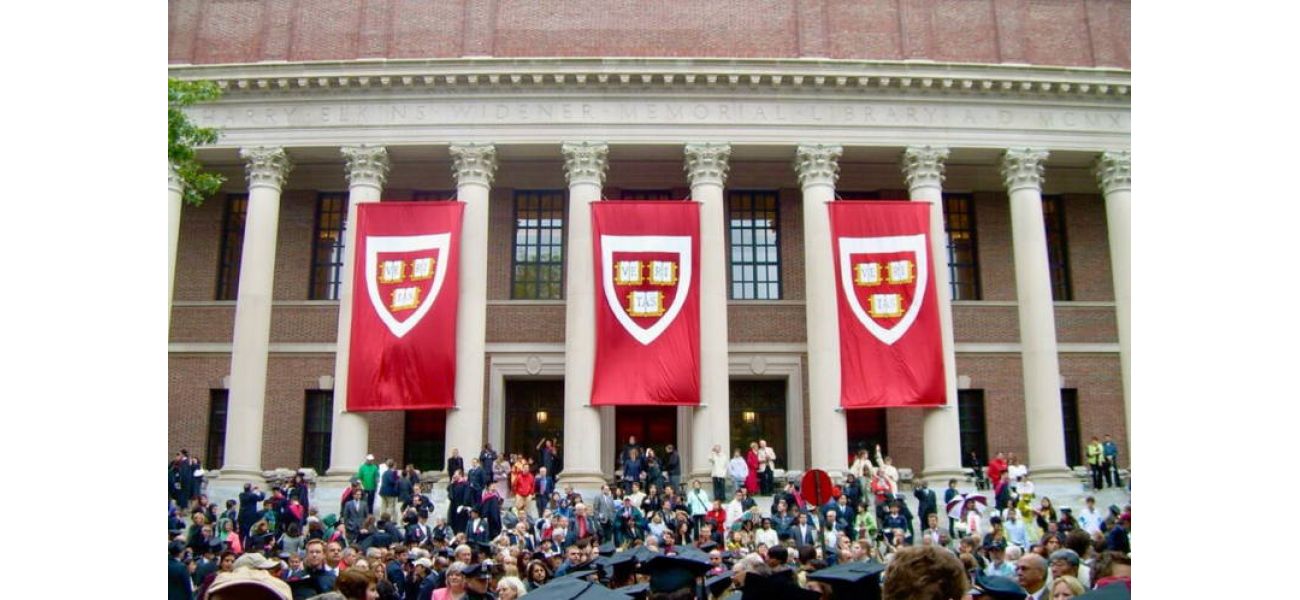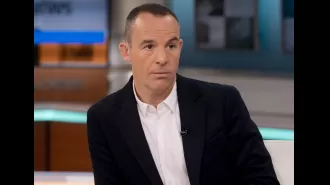Harvard Law sees 50% drop in black students due to ban on Affirmative Action.
Harvard's mention in the lawsuit greatly influenced the decrease in enrollment, according to experts.
December 17th 2024.

According to a recent report by the New York Times, the Supreme Court's decision to ban affirmative action in college admissions has had a significant impact on universities across the country. One such institution is Harvard Law School, which has seen a dramatic decline in the number of Black students enrolling in their program.
Data from the American Bar Association shows that the law school's incoming class in 2023 had the lowest percentage of Black students since the 1960s, with only 3.4% or 19 first-year students identifying as Black. This is a stark contrast to previous years, where the number of Black students enrolled at Harvard Law has been much higher. In fact, the average number of first-year Black law students since the 1970s has ranged between 50 and 70.
The decline in Black enrollment at Harvard Law has raised concerns among experts, who point to the school's involvement in a high-profile lawsuit that ultimately led to the Supreme Court's decision. Harvard law professor David B. Wilkins believes that this lawsuit has had a chilling effect on the number of Black students applying and being accepted to the program. "This is the lowest number of Black entering first-year students since 1965," Wilkins stated, referring to the year when only 15 Black students were admitted to the law school.
The impact of the Supreme Court's decision has been felt not only at Harvard, but also at other elite institutions such as Yale, Stanford, and Columbia. While some schools have seen an increase in Black enrollment, others have reported a decline. For example, Columbia Law School in New York saw a small decrease in Black students in 2023, from 48 to 42. On the other hand, Yale and Stanford have seen an increase in their Black first-year students.
In response to the decline in Black enrollment, some universities have taken steps to promote diversity on their campuses. This includes changing their application process to gain a better understanding of applicants' backgrounds and experiences. However, the numbers at Harvard and other Ivy League schools still do not reflect the values of diversity and inclusion that they strive for. In fact, there has been a decline in other demographics as well, including Hispanic and Native American students.
Harvard Law School spokesperson Jeff Neal acknowledges the difficulty in navigating first-year data, but emphasizes the school's commitment to promoting diversity and creating an inclusive community. "Harvard Law School remains committed both to following the law and to fostering an on-campus community and a legal profession that reflect numerous dimensions of human experience," Neal stated in a recent statement.
Despite the backlash and criticism, some critics of affirmative action view the decline in Black enrollment as a positive development. Law professor Richard Sander from the University of California, Los Angeles argues that this decline may actually benefit Black students, as they may find better opportunities and success at other schools where they are better matched.
However, Wilkins disagrees with this viewpoint, stating that the decline in Black enrollment is a direct result of the barriers and challenges faced by prospective Black lawyers, particularly due to the Students for Fair Admissions lawsuit. This issue has also been highlighted by Supreme Court Justice Ketanji Brown Jackson, who shared her own experiences with discrimination in a Harvard drama class with actor Matt Damon.
In conclusion, the Supreme Court's decision to ban affirmative action in college admissions has had a significant impact on universities across the country, including Harvard Law School. The decline in Black enrollment has raised concerns and sparked conversations about the barriers and challenges faced by Black students in the legal field. It is clear that more efforts need to be made to promote diversity and inclusion in higher education.
Data from the American Bar Association shows that the law school's incoming class in 2023 had the lowest percentage of Black students since the 1960s, with only 3.4% or 19 first-year students identifying as Black. This is a stark contrast to previous years, where the number of Black students enrolled at Harvard Law has been much higher. In fact, the average number of first-year Black law students since the 1970s has ranged between 50 and 70.
The decline in Black enrollment at Harvard Law has raised concerns among experts, who point to the school's involvement in a high-profile lawsuit that ultimately led to the Supreme Court's decision. Harvard law professor David B. Wilkins believes that this lawsuit has had a chilling effect on the number of Black students applying and being accepted to the program. "This is the lowest number of Black entering first-year students since 1965," Wilkins stated, referring to the year when only 15 Black students were admitted to the law school.
The impact of the Supreme Court's decision has been felt not only at Harvard, but also at other elite institutions such as Yale, Stanford, and Columbia. While some schools have seen an increase in Black enrollment, others have reported a decline. For example, Columbia Law School in New York saw a small decrease in Black students in 2023, from 48 to 42. On the other hand, Yale and Stanford have seen an increase in their Black first-year students.
In response to the decline in Black enrollment, some universities have taken steps to promote diversity on their campuses. This includes changing their application process to gain a better understanding of applicants' backgrounds and experiences. However, the numbers at Harvard and other Ivy League schools still do not reflect the values of diversity and inclusion that they strive for. In fact, there has been a decline in other demographics as well, including Hispanic and Native American students.
Harvard Law School spokesperson Jeff Neal acknowledges the difficulty in navigating first-year data, but emphasizes the school's commitment to promoting diversity and creating an inclusive community. "Harvard Law School remains committed both to following the law and to fostering an on-campus community and a legal profession that reflect numerous dimensions of human experience," Neal stated in a recent statement.
Despite the backlash and criticism, some critics of affirmative action view the decline in Black enrollment as a positive development. Law professor Richard Sander from the University of California, Los Angeles argues that this decline may actually benefit Black students, as they may find better opportunities and success at other schools where they are better matched.
However, Wilkins disagrees with this viewpoint, stating that the decline in Black enrollment is a direct result of the barriers and challenges faced by prospective Black lawyers, particularly due to the Students for Fair Admissions lawsuit. This issue has also been highlighted by Supreme Court Justice Ketanji Brown Jackson, who shared her own experiences with discrimination in a Harvard drama class with actor Matt Damon.
In conclusion, the Supreme Court's decision to ban affirmative action in college admissions has had a significant impact on universities across the country, including Harvard Law School. The decline in Black enrollment has raised concerns and sparked conversations about the barriers and challenges faced by Black students in the legal field. It is clear that more efforts need to be made to promote diversity and inclusion in higher education.
[This article has been trending online recently and has been generated with AI. Your feed is customized.]
[Generative AI is experimental.]
0
0
Submit Comment





